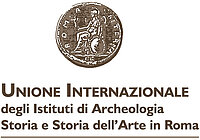Sensory Heritages & Sensitive Memories in the Balkans
The Balkans. Spaces, Societies, History - 3rd Summer School
Where University Sveti Kliment Ohridski, Sofia / University Paisii Hilendarski, Plovdiv.
When July 1-5, 2024 (arrival in Sofia on June 30, departure from Sofia on July 6).
Deadline for application extended until February 29, 2024.
Organisers École française d’Athènes, École française de Rome, CETOBAC (UMR8032 CNRS/EHESS), Aix-Marseille University (Institut SoMuM, UMR 7303 TELEMMe, AMU-CNRS), Università degli studi di Trieste, University Lumière-Lyon2 (UMR 5600 EVS), University Sveti Kliment Ohridski, Sofia, University Paisii Hilendarski, Plovdiv.
Heritage and memory processes are usually analysed as discourses, practices and representations, entailing critical approaches of heritage policies, official versus alternative narratives, memory concurrence, contested heritages, politicization of culture and history. They are related to identity and alterity making, temporalities and spatialities, relations between power and knowledge, community and society building at different scales (local, national, transnational), symbolic appropriation or rejection of cultural legacies. While relevant, these approaches neglect the proper sensory and perceptive dimensions of these processes: how are they embodied and performed (Seremetakis, 1993)? How do they deal with sensoriality (sound, taste, sight, smell, touch)? What kind of environments and ambiances do they provide? How do they mark a landscape, and how they merge and articulate to form particular ‘sensory scapes’ (Appadurai, 1996): smellscapes, soundscapes, visioscapes? What role do heritage and memory play in expressing and creating specific ways-of-being-in-the world, including relationships to places, objects, milieus, living beings, supernatural entities, etc.? What are the body politics of heritage and memory, and how do they relate (and change according) to cultural and historical contexts? More generally, can we speak of politics of the senses (Howes & Classen 2014) including policing and politicizing senses, ‘moralizing’ specific senses (Hirschkind 2006), or even promoting democracy and modernity (Hann 1990) through the senses?
We propose to explore the potentialities of the ‘history of senses’ (Corbin 1982, 1994; Mintz 1984) as well as the “sensory turn” in social sciences for providing new insights on heritage and memory processes in the Balkan societies. The cultural identities in the Balkans are often associated to sensory singularities, transmitted and recreated, negotiated and contested, attached to ‘natural’ and material objects (fields, rocks and waters but also houses [Bahloul 1992], a fireplace…) converted into affects, emotions and feelings. These sensory dimensions participate to the production of individual and collective memory, and to the embodiment of heritage as a lived experience. They are consubstantial to a sense of space through place making and dwelling (Ingold, 2000) as well as circulation, migration or diaspora phenomena. They have a peculiar relationship to temporality: usually associated to fugacity (some scholars [Candau 2009] speak of sensory ‘events’), the senses, emotions and affects (Roth, 2022), as well as the object and places they are anchored in, may function as time ‘containers’ encapsulating lived experiences. In short, the senses (in both their physical and cultural dimensions, Herzfeld, 2007) play a key-role in giving meaning to time past (Bahloul 1992, Candau 2016), making sense of memory and heritage, but also framing our political perception of time and space (Hamilakis, 2013). We also argue that these sensory dimensions are particularly mobilized and palpable when it comes to politically “sensitive” heritage and memory issues, such as cultural property and rights, imposed or contested narratives, concurrent political legitimacies and cultural intimacies.
The themes delineated above will be articulated around several lines: the following list, even if not exhaustive, is intended to serve as general guidelines for the doctoral students’ research proposals.
- The senses, time capsule? Senses, ways of being, nostalgia.
- Memory and intimacy through the senses.
- Sensoriality, sociability, power.
- Sensitive landscapes and sensory scapes (visioscapes, smellscapes, soundscapes…).
- The tastes and distastes of the Balkans.
- Politicizing and moralizing the senses.
- Sound, music and concurrent cultural intimacies.
- Mobilizations around sensitive heritages: which senses to promote in Intangible Cultural Heritage programs?
This summer school gathers between ten and twelve lecturers and up to fifteen students in different disciplines (history and art history, archaeology, geography, anthropology, sociology, political sciences, cultural and literary studies, law studies), addressing heritage and memory issues in the Balkan societies through the senses, sensoriality, sensibility, sensitivity. It welcomes methodological and theoretical proposals based on concrete case studies and mobilizing senses not only as an object of study, but also as a modality of knowledge (including the use of different media).
Our aim is to promote collective and small-group working formats, which favour brainstorming and intensive training activities. Thus, the introduction and/or some keynote lectures will be framed as round-table discussions, mixing invited speakers and researchers of the hosting institutions. The working sessions will be designed as discussion spaces. It is therefore planned to propose, before the workshop, reflective texts clarifying aspects of the theme of each workshop, which will allow participants to enter into dialogue.
Each half-day will revolve around one or two communication(s) given by invited speakers, followed by a doctoral workshop, sometimes in small groups. In order to avoid locking ourselves into hyperspecialization, theoretical and methodological insights will be provided by speakers from different disciplines and a wider range of geographical areas.
Beside presentations and discussions, in situ experiences (walkshops, film screening, workshops) triggering sensoriality and encouraging nonconventional approaches to the sensory dimensions of heritage and memory, will be an integral part of the Summer School. Developed in collaboration with the host institutions, such experiences will make specific openings toward both academic and extra-academic approaches to the whole range of discussed topics through art, creation, design, literature, etc.
Application
We welcome applications from PhD and M2 students in history, art history, geography, anthropology, sociology, political science and literature. The working language is English but a passive knowledge of French will be appreciated. Transportation costs must be covered by the students’ educational institutions. The organisers provide accommodation in Sofia and Plovdiv and meals, and organise transportation between Sofia and Plovdiv.
Applications should be made online via the Missions de l’EFA platform before February 29, 2024 and include:
• an application form.
• a Curriculum Vitae.
• a letter of motivation.
• one reference letter.
• a short description of the thesis (max. 3000 signs).
• a paper proposal connected to the summer school’s topic (max. 3000 signs).
The selection of participants will be published by February 28, 2024. Participants must commit themselves for the whole duration of the training.
Organizing/scientific committee: Tullia Catalan (Università degli studi di Trieste), Olivier Givre (University Lumière-Lyon2, UMR 5600 EVS), Catherine Horel (CETOBAC, UMR8032 CNRS/EHESS, Paris), Violeta Kotzeva-Popova (University Sveti Kliment Ohridski, Sofia), Laura Pettinaroli (École française de Rome), Gilles de Rapper (École française d’Athènes), Pierre Sintès (Aix-Marseille University, Institut SoMuM, UMR 7303 TELEMMe), Galia Valtchinova (Université de Toulouse, LISST-CAS, UMR 5193), Meglena Zlatkova (University Paisii Hilendarski, Plovdiv).
Contact: gilles.derapper(at)efa.gr




